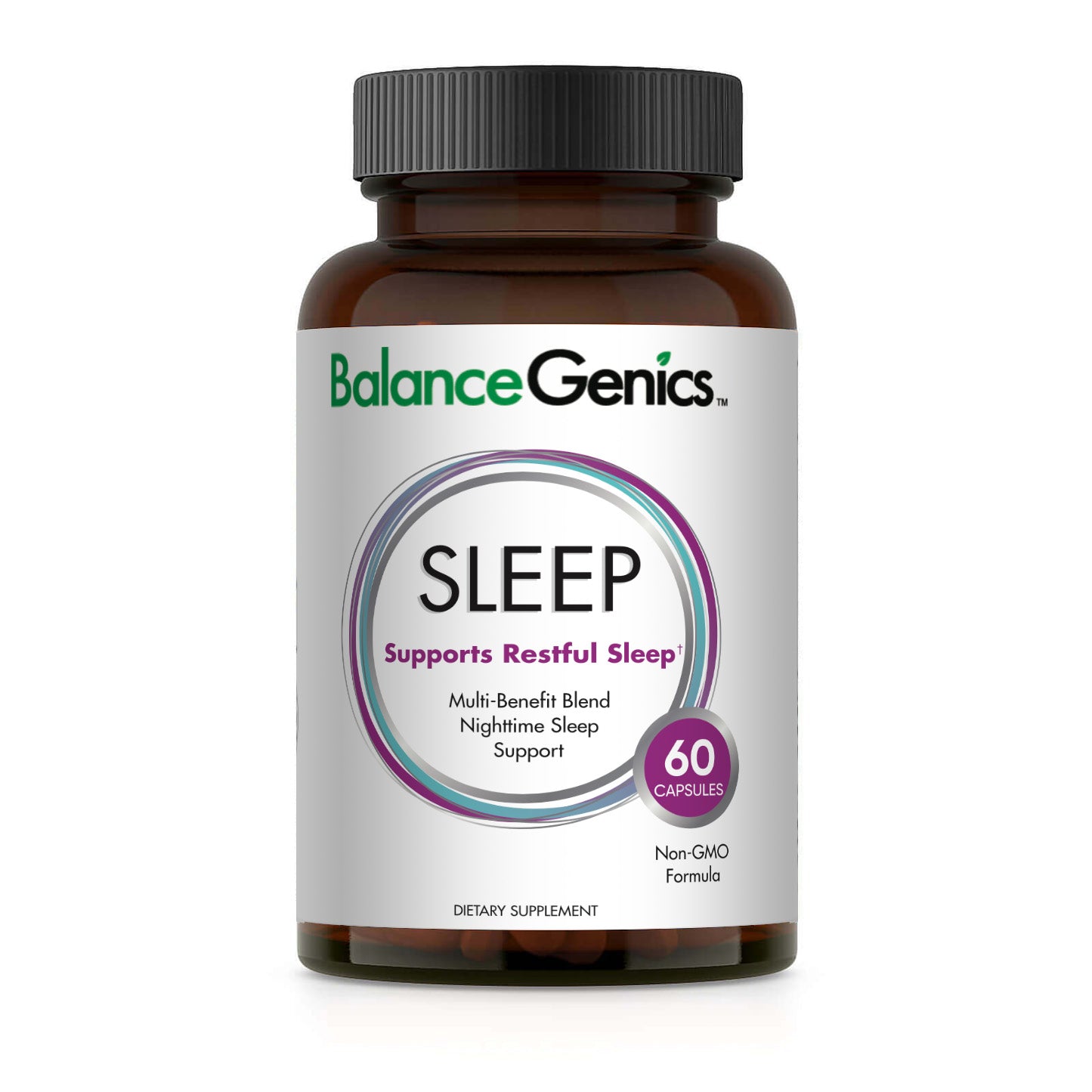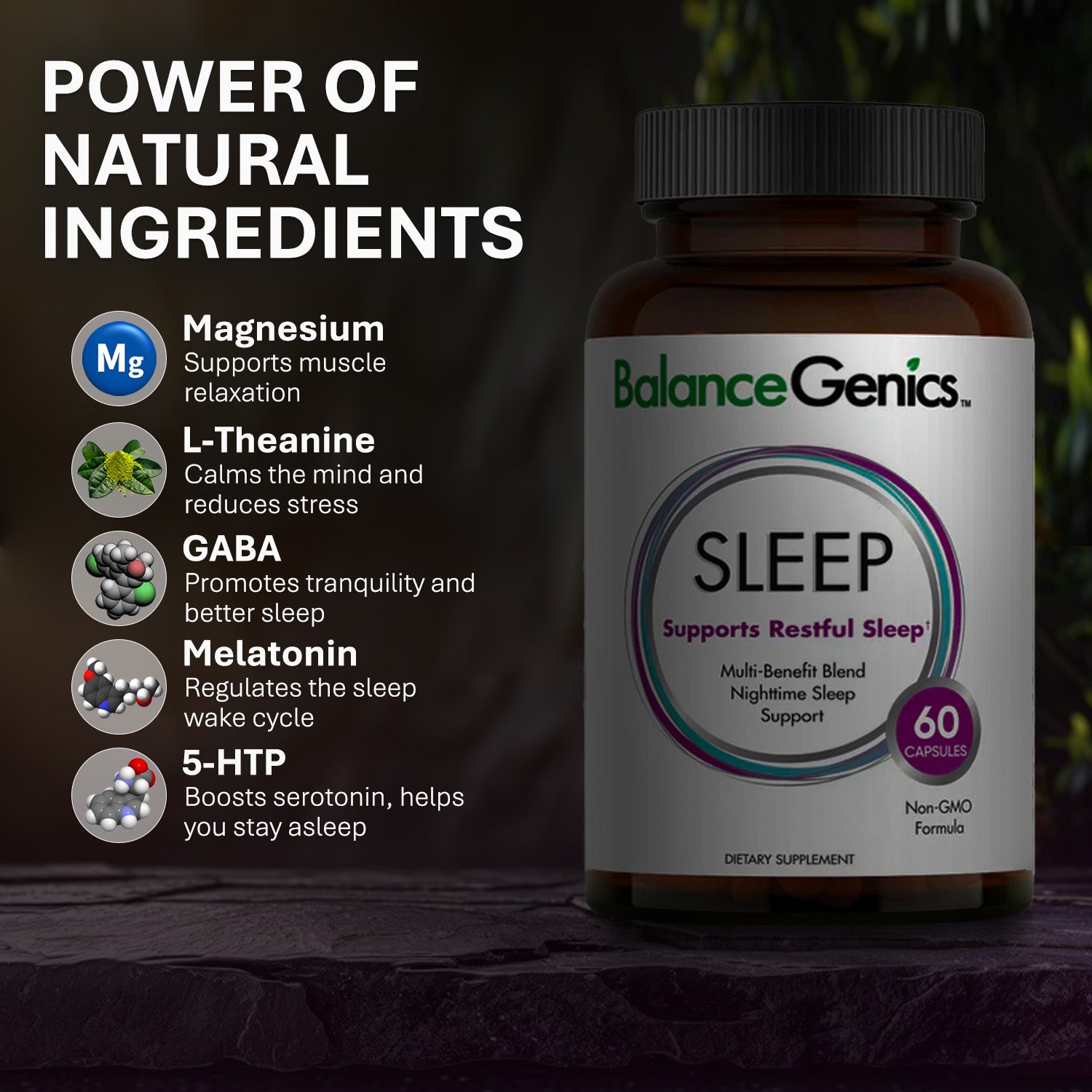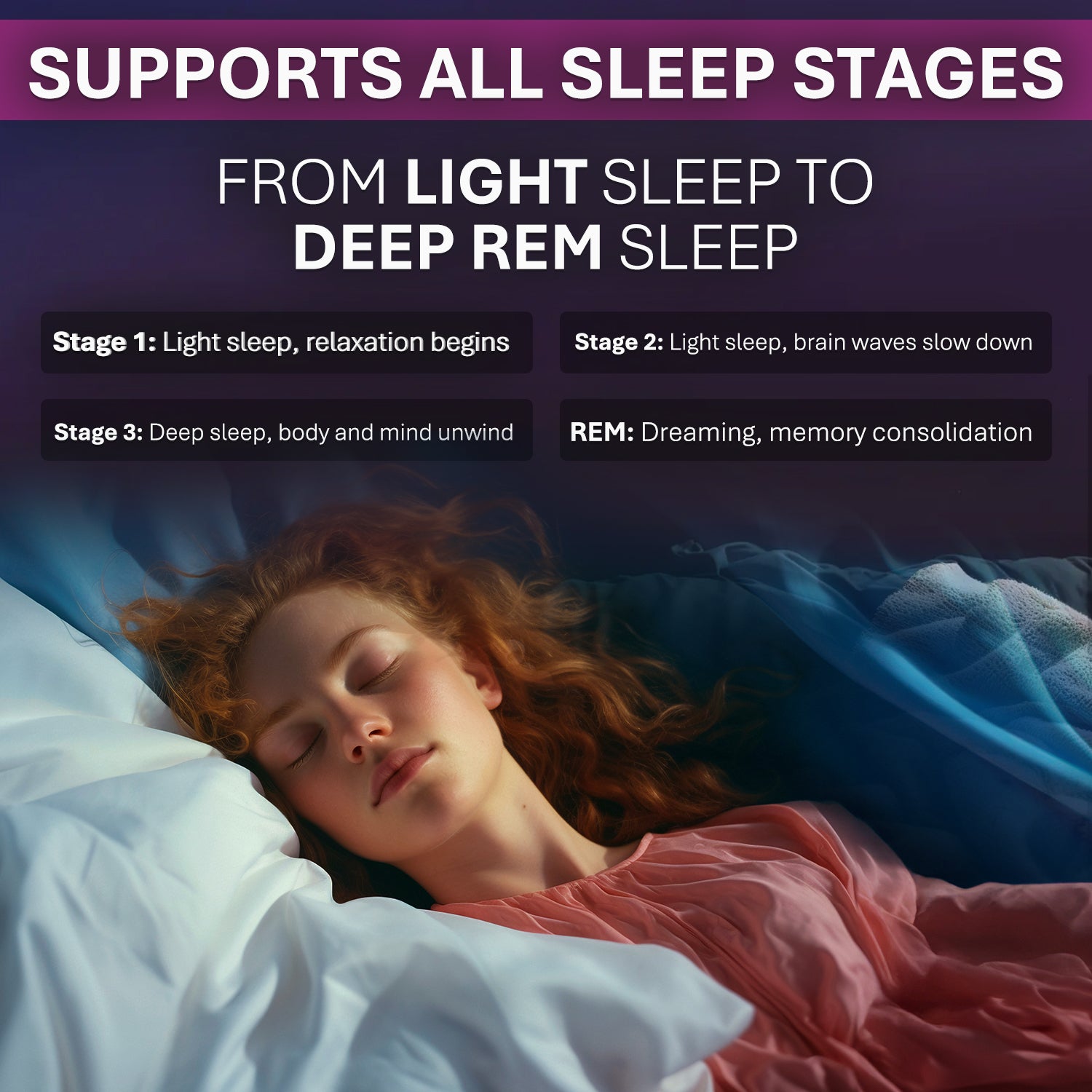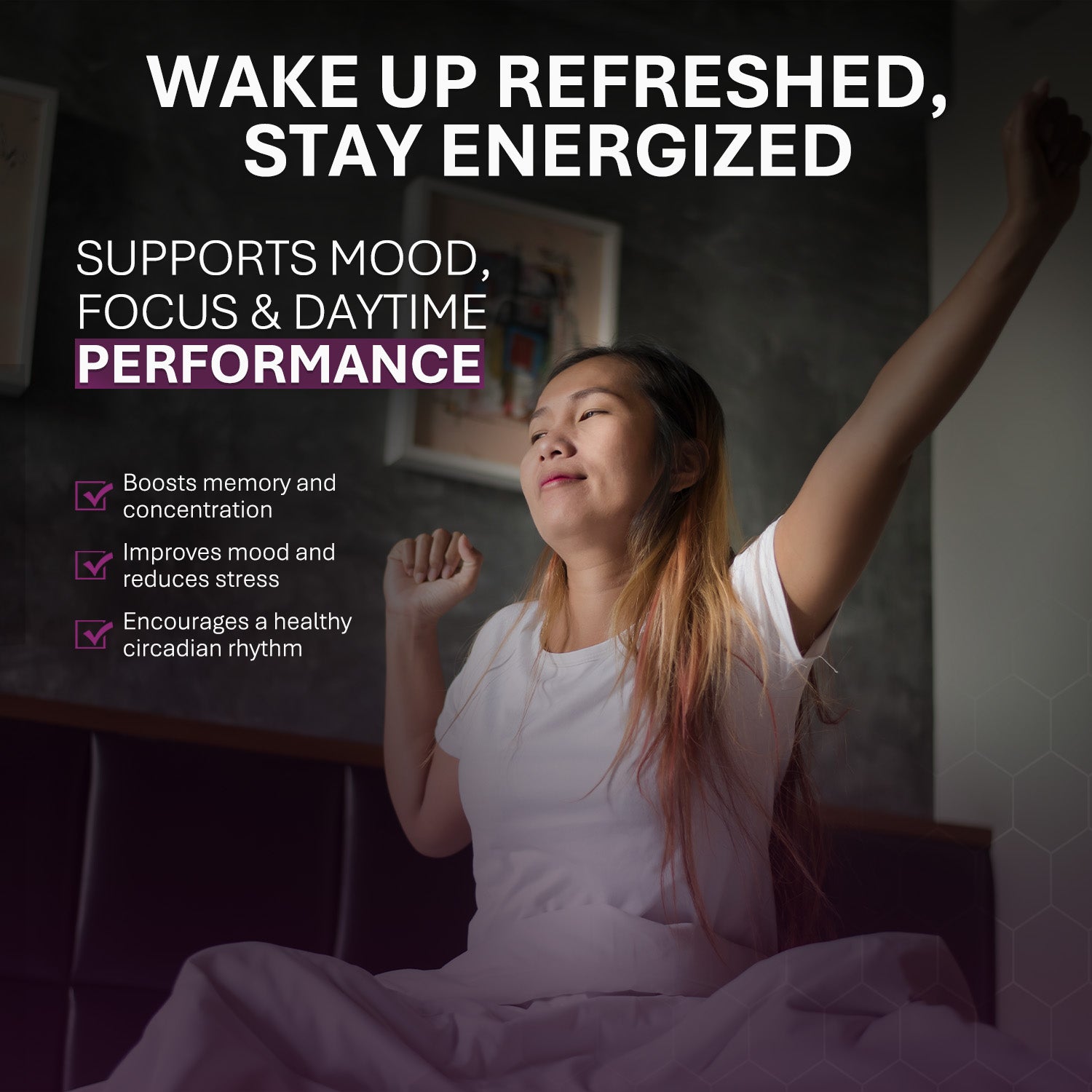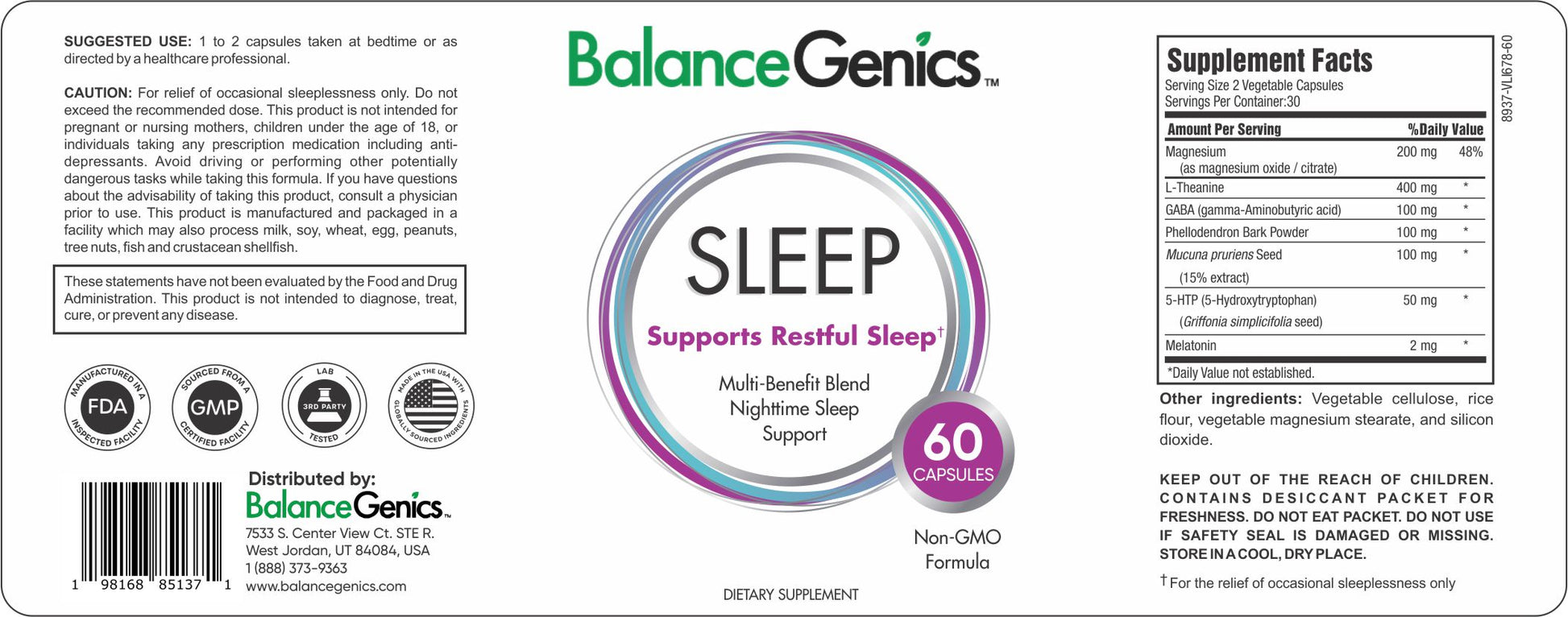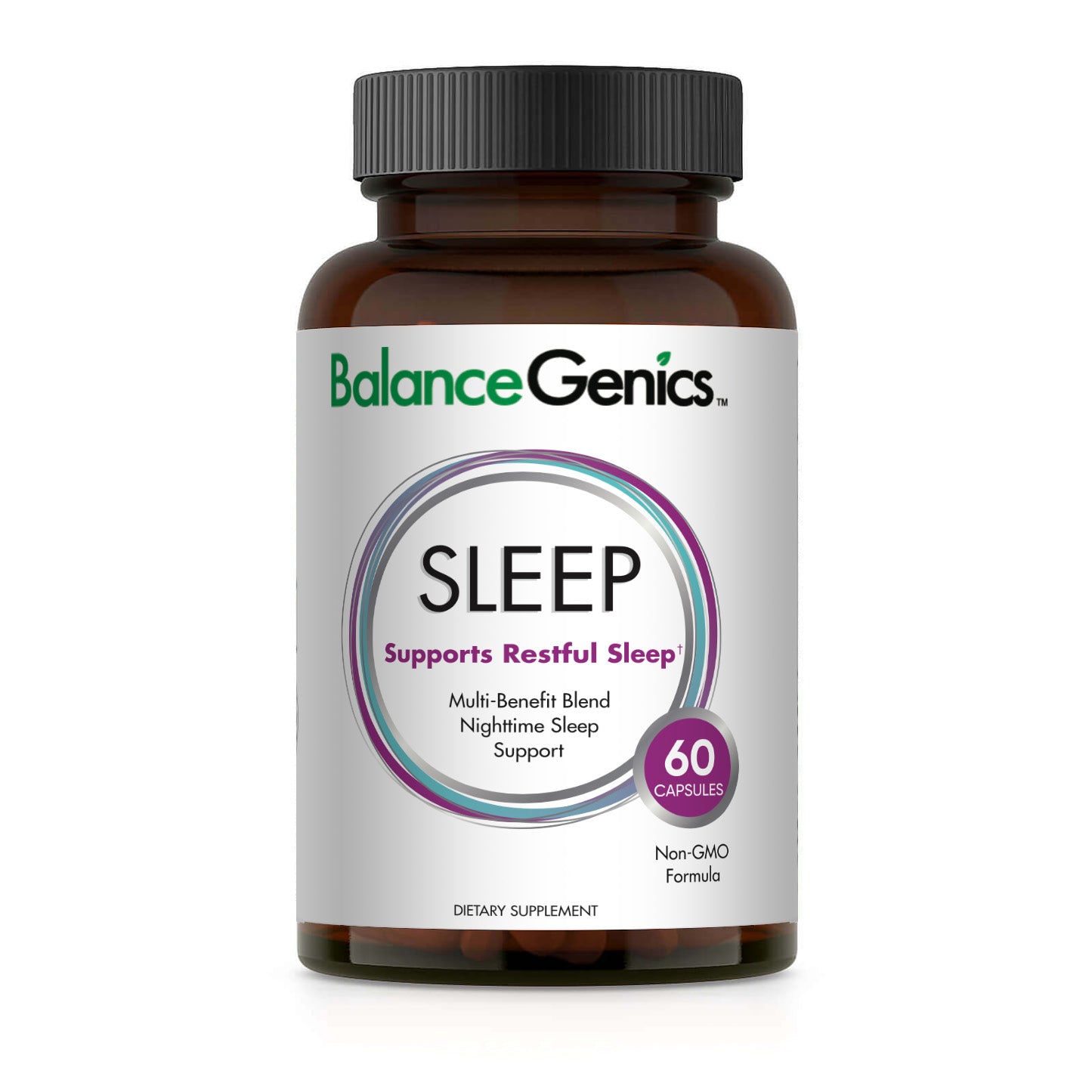
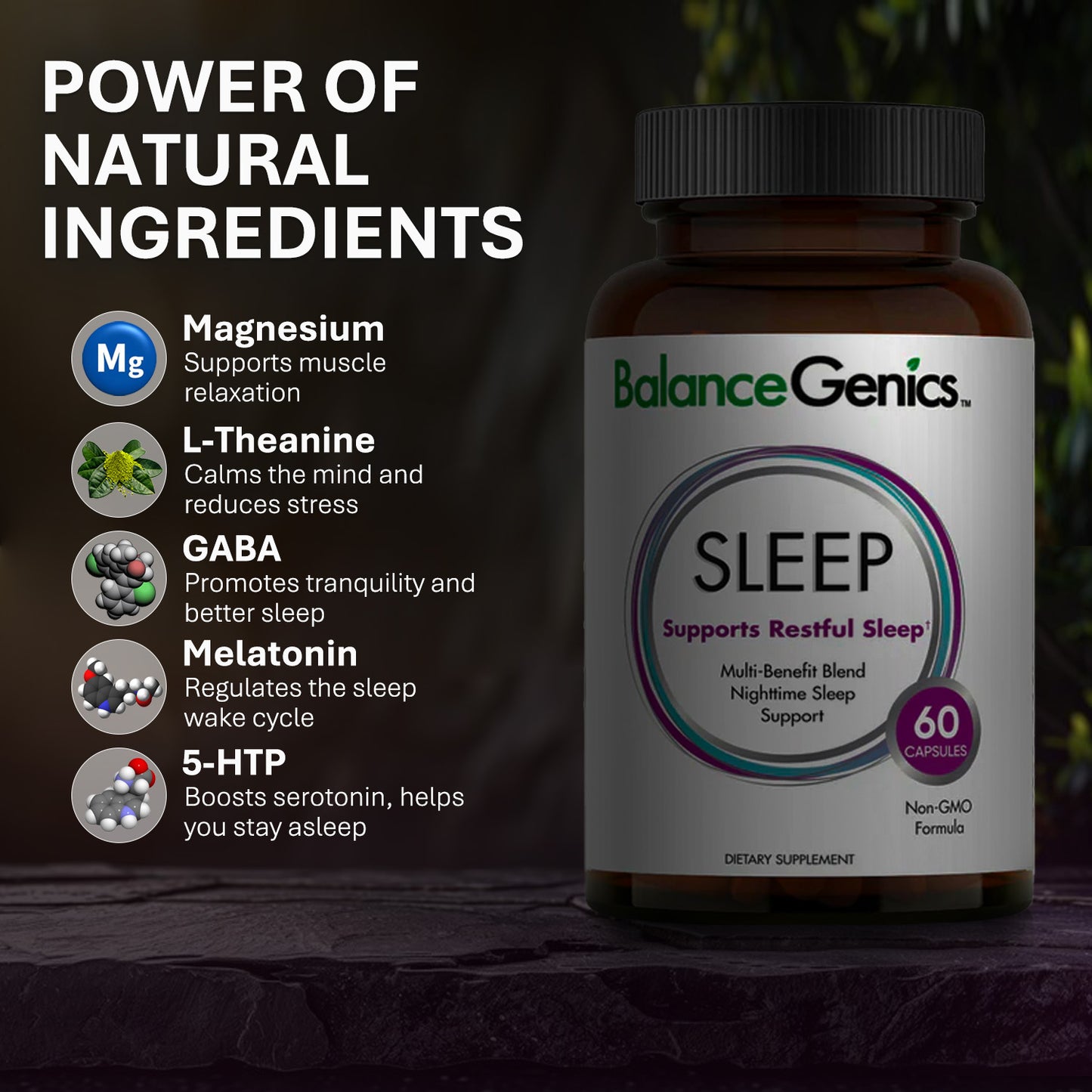
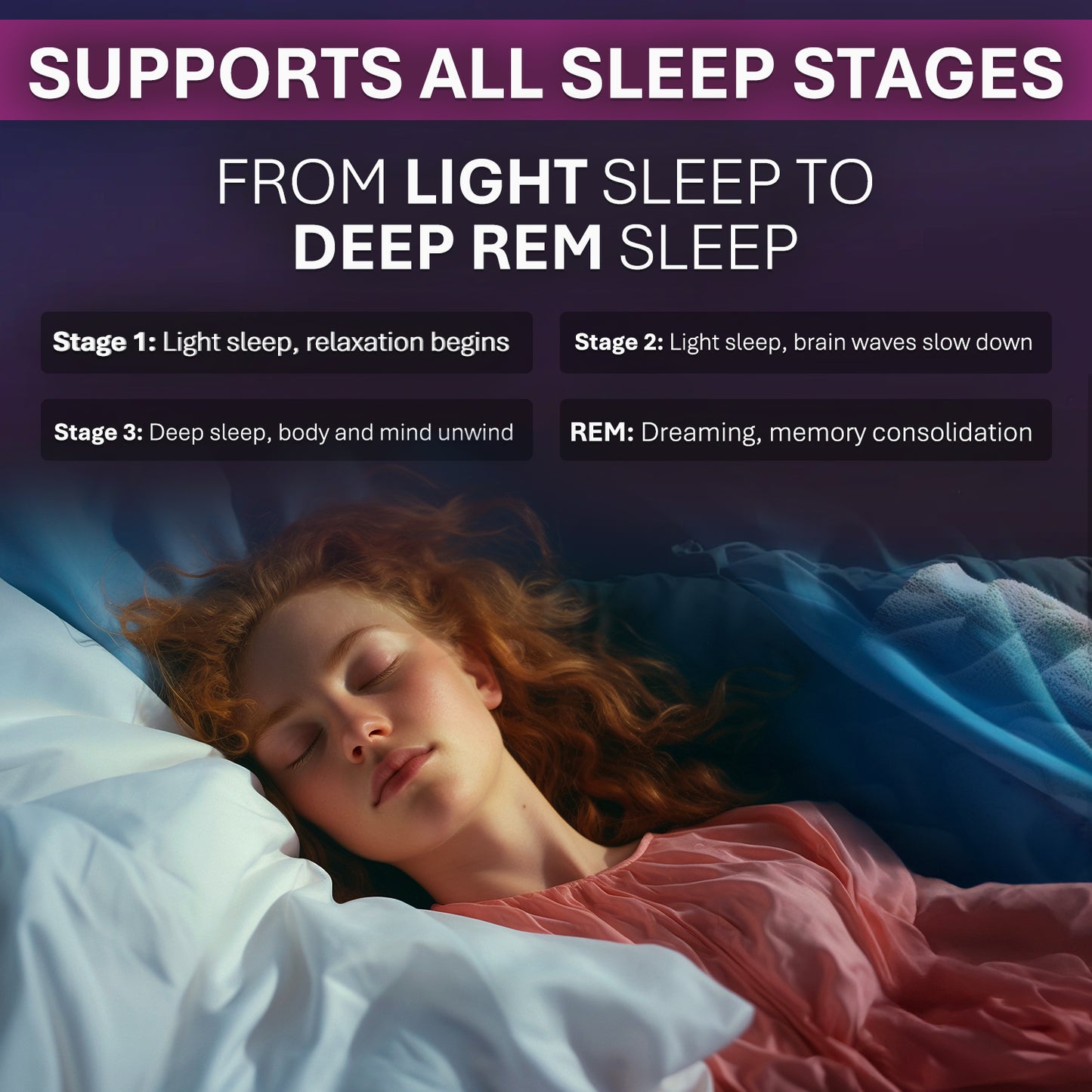
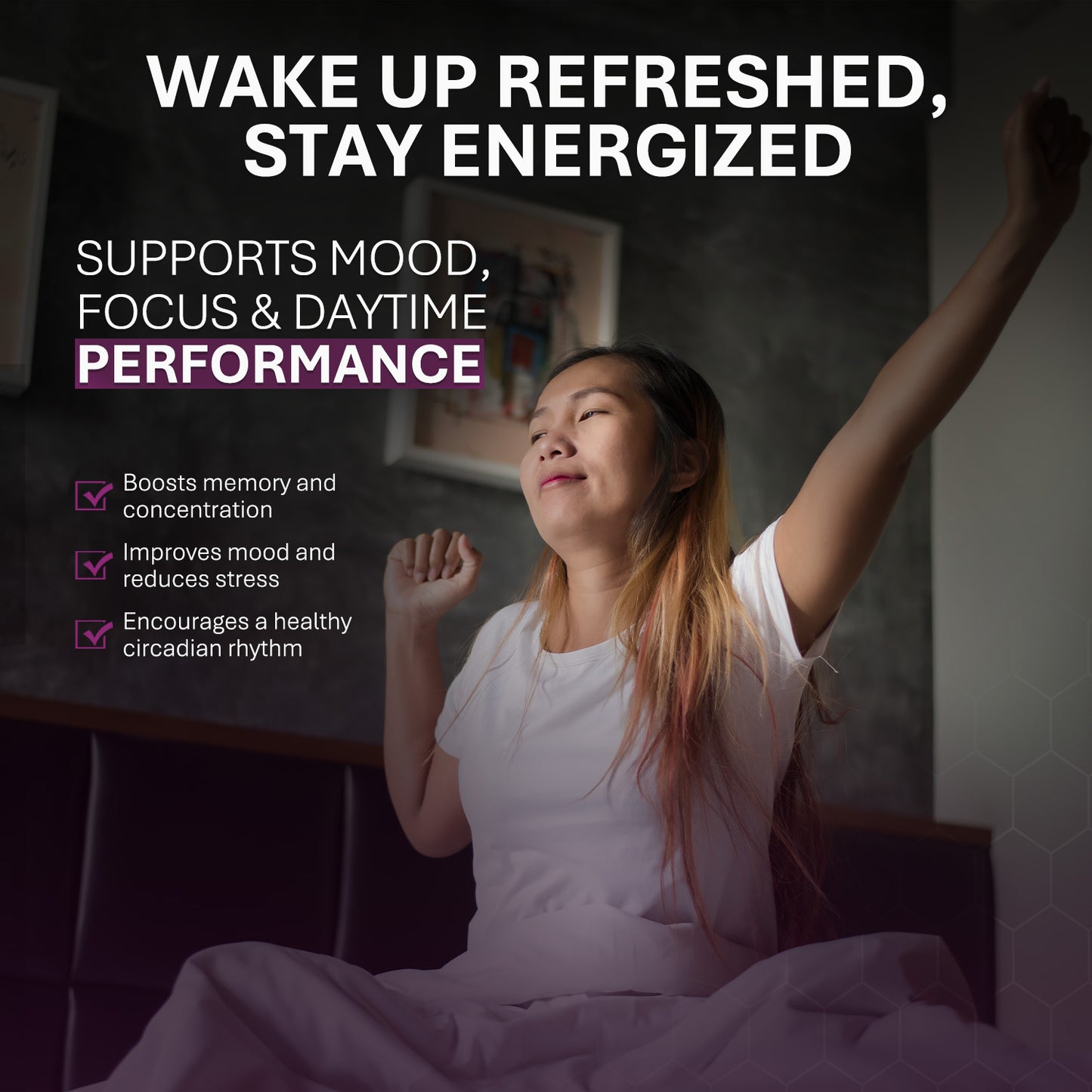

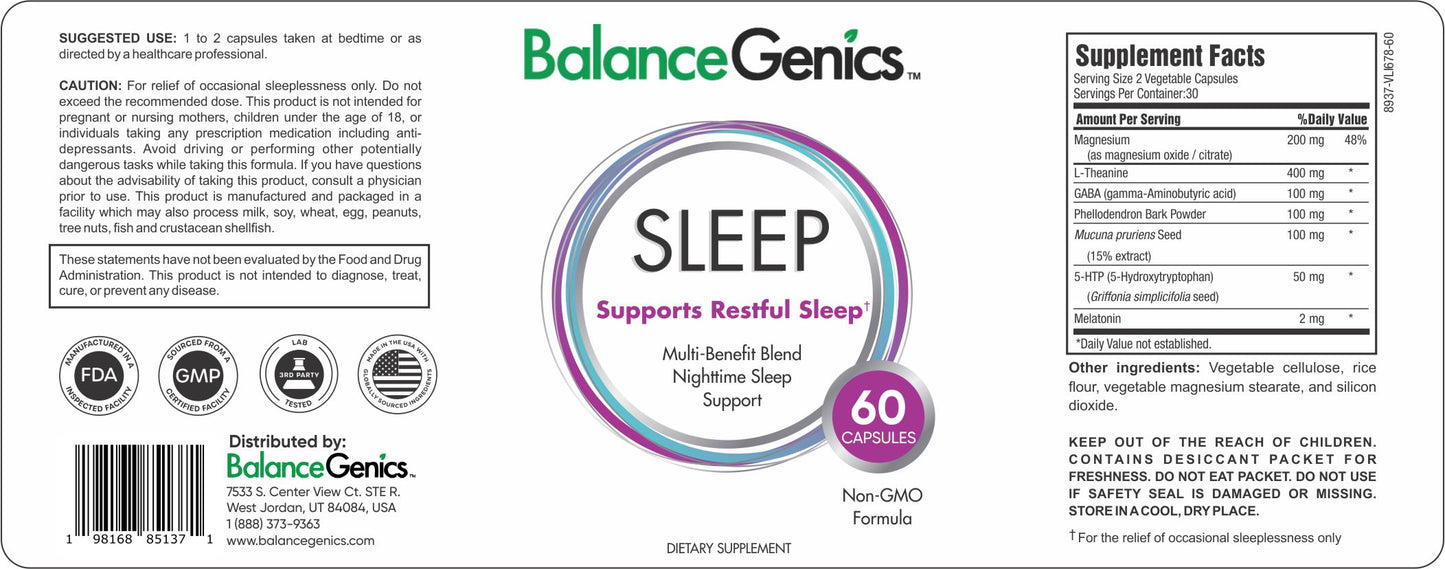

The Role of GABA in Sleep and Brain Function
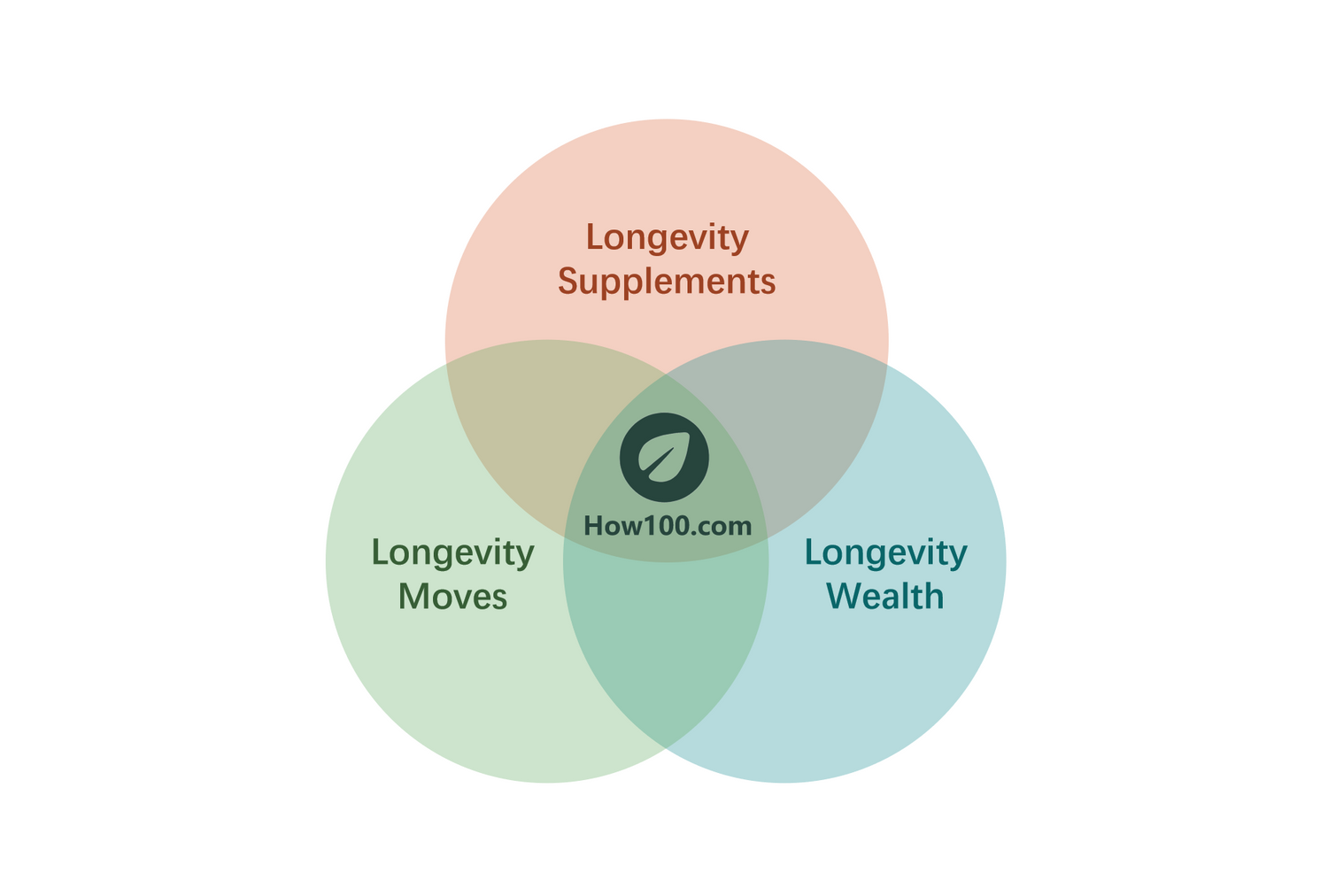
The Importance of Quality Sleep. The Vital Truth Uncovered.
Before the 1950's, scientists used to believe that as people drifted off to sleep, their brains and bodies would shut down, going into a state that allowed them to recover from the previous day. Researchers have since learned that it is a lot more complicated than that, and it’s a much more active state than originally thought. While you’re sleeping, your brain goes through various patterns of activity. Sleep serves to reenergize the body's cells, clear waste from the brain, and support learning and memory. It even helps to regulate mood and appetite. One example of this is the cerebral spinal fluid that pumps more quickly throughout the brain while you sleep. It acts like a vacuum cleaner, cleaning out toxins and waste. Scientists say that quality sleep is as important to health as food and water are. A lack of quality sleep can lead to suboptimal memory, mood swings, trouble concentrating, weight gain, and early aging. That’s why we at BalanceGenics have created a signature Sleep Formula that is designed to support every stage of sleep and the complex functions of the brain.
Uncovering the Stages of Sleep and the Essential Role of Each One.
There are five stages of sleep that rotate between NREM and REM and include drowsiness, light sleep, moderate to deep sleep, deepest sleep, and dreaming.
Stage One: happens within minutes of falling asleep. It is a light, NREM sleep that only lasts up to 7 minutes. During this time your brain produces what are called alpha and theta waves and your eye movements slow down. You may start to relax and dream in this light sleep stage.
Stage Two: is also a light sleep. Your breathing and heart rate slow down, and your muscles begin to relax. During this stage your brain waves start to slow down. Those that take “power naps” would want to wake up after this stage.
Stage Three: is when your body enters a deeper sleep. During deep sleep, your breathing, heartbeat, body temperature, and brain waves reach their lowest levels. Your muscles are extremely relaxed, and you are most difficult to rouse.
Stage Four: is known as the healing stage. This is when the body repairs muscles and tissues, stimulates growth and development, boosts immune function, and builds up energy for the next day. The brain produces even more delta waves in this restorative stage, and it’s most difficult to wake up during this time.
REM Sleep: occurs about every 90 minutes after falling asleep, and can last up to an hour. In this final phase of sleep, your brain becomes more active. This is when most dreaming occurs, your eyes jerk quickly in different directions, and your breathing, heart rate, and blood pressure rise to near-waking levels. Your arms and legs become temporarily paralyzed during this stage to prevent you from physically acting out your dreams. REM sleep plays an important role in learning and memory function, since this is when your brain consolidates and processes information from the day before so that it can be stored in your long-term memory.
Ingredients And Their Benefits:
Magnesium (200 mg): Known to support muscle relaxation and overall sleep quality by calming the nervous system. Magnesium deficiency is often linked to poor sleep quality.
L-Theanine (400 mg): An amino acid found in tea leaves that promotes relaxation and reduces stress without causing drowsiness. It helps to calm the mind and prepare the body for sleep.
GABA (100 mg): A neurotransmitter that helps calm the nervous system, promoting a sense of tranquility and readiness for sleep. GABA is crucial for reducing anxiety and improving sleep quality.
Phellodendron Bark Powder
(100 mg): Traditionally used in herbal medicine for its calming effects, helping to reduce stress and anxiety. This natural ingredient supports a peaceful mind and body.
Mucuna pruriens Seed (100mg): Contains natural compounds that support mood and relaxation, aiding in falling asleep faster. It is known for its ability to boost dopamine levels, which can improve mood and relaxation.
5-HTP (50 mg): A precursor to serotonin, which regulates mood and sleep cycles, helping you fall asleep and stay asleep. 5-HTP is essential
for maintaining a healthy sleep-wake cycle.
Melatonin (2 mg): A natural hormone that regulates the sleep-wake cycle, helping you fall asleep more quickly and maintain a regular sleep pattern. Melatonin is vital for synchronizing your internal clock with the external environment.

A Bedtime Routine that Will Make You Rise and Shine.
Making Dreams Come True By Helping You Dream Again.
ENCOURAGES NIGHTTIME RELAXATION
Most people tend to worry, plan, think and engage their brains right before bed. Our brains may have developed the habit of running wild as soon as we lie down. This is the result of trying to avoid worries during the day by keeping ourselves busy and distracted. After a while, lying in bed at night becomes the only time for major concerns to rise to our awareness.
L-theanine is an amino acid that is found in tea leaves. L-theanine is what’s known as an anxiolytic—it works to reduce feelings of stress. Some anxiolytics have sedative effects, while L-theanine promotes relaxation and stress reduction without sedating. L-theanine can help foster a state of calm, attentive wakefulness.
L-tryptophan is an essential amino acid which means it must be obtained from the diet because the body can’t make it. L-Tryptophan helps boost serotonin and melatonin, both neuro-transmitters in your brain’s pineal gland, that help support your sleep-wake cycle. Studies show that using L-Tryptophan supplementation can promote a sense of calm and relaxation a half hour before sleep.
Promotes Naturally Restful Sleep
Sleep problems, related to work schedules and a 24/7 lifestyle, are pervasive. In America, 70% of adults report that they obtain insufficient sleep at least one night a month, and 11% report insufficient sleep every night. Research shows that 35% of adults don’t get enough sleep (7 hours) each night.
Melatonin is a hormone the body produces naturally. Natural melatonin is produced primarily by the pineal gland in the brain. Melatonin plays an important role in supporting sleep. Its levels begin to rise in the evening to promote sleep and fall in the morning to help wake you up. Melatonin supplements help increase those natural levels at night, when you need it most. Research indicates that melatonin may improve the quality of sleep by shortening the time it takes to fall asleep, increase overall sleep amounts, and increase REM sleep.
L-Tryptophan helps to naturally produce melatonin, and provides extra doses of sleep inducing amino acids that reportedly help counteract sleep disturbances.
Improves Attentive Wakefulness, Daytime Performance and Mood
What’s worse than a poor night's sleep? Feeling the effects of it the next day. According to Medscape, 37.9% of people have reported unintentionally falling asleep during the day or at work. Lack of sleep is also the cause of over 7% of all serious accidents in the workplace. Sleep affects our mood and our ability to think, react, remember, and solve problems. We may develop a tolerance to a lack of sleep and aren’t aware how much our alertness and performance is really suffering. There's a cycle that happens between mood and sleep—worry and stress can interfere with healthy sleep, and poor sleep makes us more vulnerable to problems with emotional distress and mood swings.
5-Hydroxytryptophan—
commonly known as 5-HTP—is a compound made naturally in the body that helps the body produce serotonin. Serotonin is a neurotransmitter that plays a key role in supporting mood and sleep-wake cycles. Healthy levels of serotonin contribute to a positive mood and promote restful sleep. Serotonin is also essential for maintaining healthy melatonin levels—and both serotonin and melatonin are critical for maintaining a well-functioning circadian rhythm. 5-HTP can be effective in improving mood, and easing symptoms of stress, which can interfere with sleep.
L-Theanine also reduces levels of chemicals in the brain that are linked to feelings of stress and general unease. L-Theanine has been known to enhance alpha brain waves, the same waves that are present during REM sleep. Alpha brain waves are associated with a state of “wakeful relaxation”—the state of mind you experience when meditating, being creative, or letting your mind wander in daydreaming.
Beat Jet Lag
Jet lag is a temporary state of being that occurs when your body’s internal clock is disrupted by travel across multiple time zones. Signs of jet lag range from daytime fatigue and trouble concentrating to muscle minor soreness, gastrointestinal upset, and occasional headaches. Most people experience a generalized sense of feeling unwell. Our circadian rhythm is directed by the suprachiasmatic nucleus, an area of the brain that responds to light signals from the retina and tells us when to be awake and when to sleep.
Melatonin is a hormone that helps support our circadian rhythm by working as a darkness signal. Supplemental melatonin is commonly used for jet lag; it’s been shown to help with both sleep and reducing jet lag signs. It is best to take melatonin about 90 minutes before bedtime in a new time zone, and make sure to get a dose of bright light exposure first thing the next morning.
Manage Weight
Taking 5-HTP may support behaviors that help a person lose weight or maintain a healthy weight. For decades, 5-HTP has been known to support a healthy appetite by stimulating serotonin production in the brain. Higher levels of serotonin are linked to diminished appetite, and may help reduce cravings for carbohydrates. Research indicates that 5-HTP may be effective in helping people who are overweight or obese lose weight.
A randomized placebo-controlled trial studied 20 women who were overweight, 10 of whom took a 5-HTP supplement for 4 weeks. The other 10 women took a placebo for the same amount of time. At the end of the study, the women who took 5-HTP reported greater feelings of satiety, or fullness, when eating, which led to a decreased food intake. The women who took 5-HTP also had reduced body mass index.
Circadian Rhythm (Sleep-Wake Cycle)
Your circadian rhythm is basically a 24-hour internal clock that is running in the background of your brain and cycles between sleepiness and alertness at regular intervals. It's also known as your sleep/wake cycle.
A part of your hypothalamus (a portion of your brain) controls your circadian rhythm. That said, outside factors like lightness and darkness can also impact it. When it’s dark at night, your eyes send a signal to the hypothalamus that it’s time to feel tired. Your brain, in turn, sends a signal to your body to release melatonin, which makes your body tired. That’s why your circadian rhythm tends to coincide with the cycle of daytime and nighttime (and why it’s so hard for shift workers to sleep during the day and stay awake at night).
Your circadian rhythm works best when you have regular sleep habits, like going to bed at night and waking up in the morning around the same times from day to day (including weekends). Things like jet lag, daylight savings time, a compelling book you can’t put down, or binge watching Netflix all night long, can disrupt your circadian rhythm, which makes you feel out of sorts - making it harder to pay attention during the day.
Your body needs to start preparing to go to bed about 60 minutes before sleep and then preparing to rise about 90 minutes before waking. When your body goes through all the essential stages of sleep, you fall asleep more easily and wake up more refreshed. BalanceGenics Sleep Formula is designed to naturally support your circadian rhythm, making these phases a part of your sleep cycle once again.
How To Take
How to take Balance
Genics Sleep Formula As a dietary supplement take one (1) capsule before bed or as directed by your healthcare professional.
Natural Ingredients for Natural Sleep



